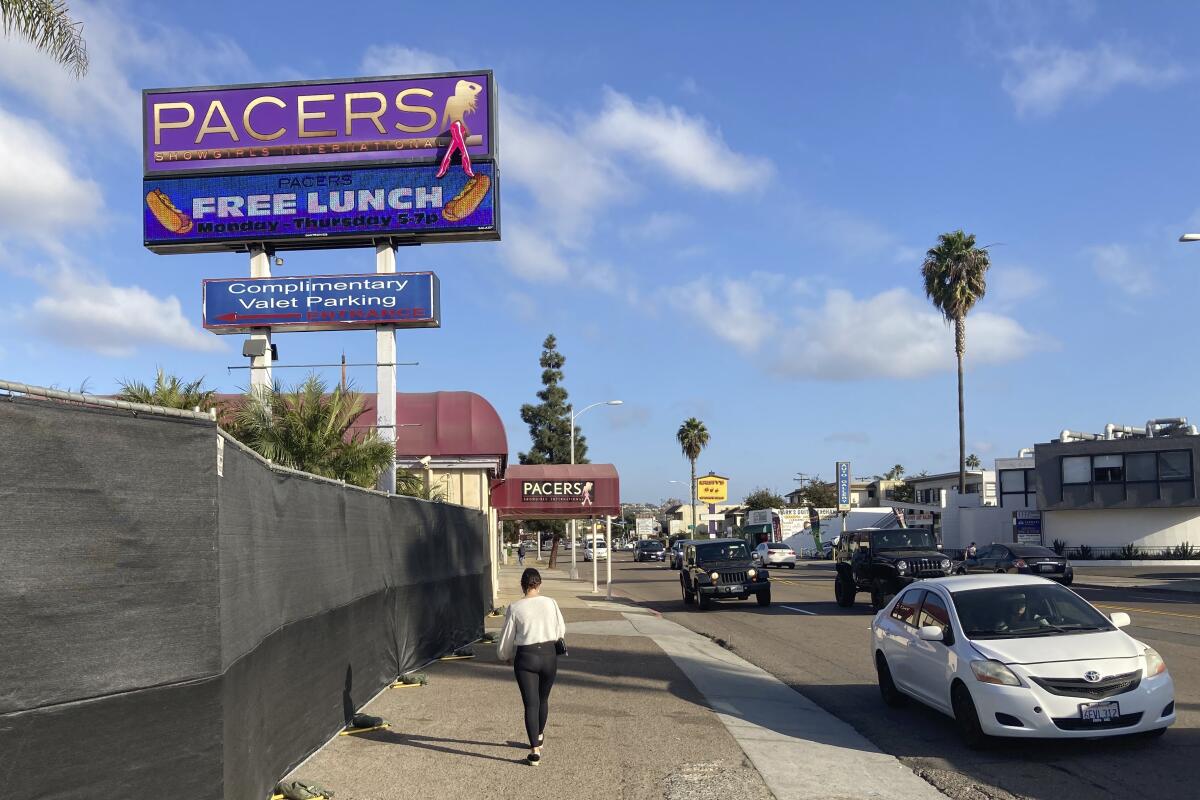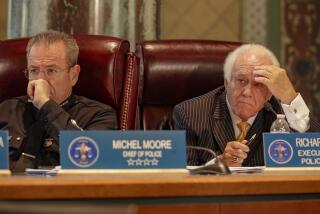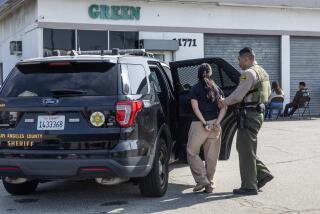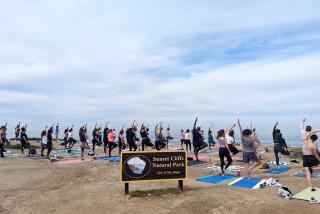San Diego changing rules for police inspections at strip clubs, massage parlors, card rooms

SAN DIEGO — San Diego is updating when and how police can inspect businesses with special permits such as massage parlors, strip clubs, card rooms and live entertainment venues.
The City Council on Monday unanimously approved municipal code changes that stipulate undercover inspections must occur during normal operating hours for the business and can only happen in parts of the business open to the public.
The changes also give Police Chief David Nisleit more time to reject permit applications, and they require businesses to inform the city in writing when there is a change to who is responsible for overseeing day-to-day operations.
The council backed away from a Police Department proposal to make another change that would have removed from the permit appeals process the council’s Public Safety and Livable Neighborhoods Committee.
The department proposed removing appeals to the committee because businesses also can appeal to an administrative law judge and a San Diego Superior Court judge.
If a business has its permit rejected or suspended, the business first can appeal to an administrative law judge, then to the council’s public safety committee and then to Superior Court.
Department officials noted that appeals to the committee have been rare. An appeal by Lucky Lady card room in 2017 is the last appeal in recent memory, they said.
Council members said more deliberation is needed before appeals to the committee can be removed from the process. But they said a rule requiring the committee to hear such appeals within 21 days might need to change because the committee only meets once a month.
Councilmember Stephen Whitburn expressed concern that eliminating the committee from the appeals process could be unfair to businesses with limited resources who could struggle to pay for a Superior Court appeal.
Police officials said they regulate such businesses using a combination of covert and overt efforts.
In covert operations, officers pose as patrons to observe operations without interfering. Unless immediate action is needed to curtail dangerous activities, the business remains open and enforcement action is taken later.
In overt operations, officers immediately identify themselves and focus on administrative and regulatory inspections. If violations are discovered, businesses get either a verbal warning, a suspension or their permit is revoked.
More to Read
Sign up for Essential California
The most important California stories and recommendations in your inbox every morning.
You may occasionally receive promotional content from the Los Angeles Times.











